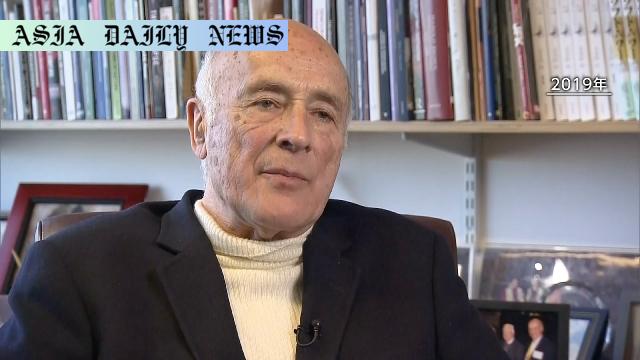Joseph Nye: Renowned political scientist, influential in shaping US-Japan relations, and creator of the ‘soft power’ theory, passes away at 88.

Joseph Nye’s Life and Contributions
Joseph Nye, one of the most prominent and influential political scientists of the modern era, passed away at the age of 88. A professor at the Harvard Kennedy School, Nye shaped the framework of global diplomacy and international relations through his groundbreaking theory of ‘soft power.’ Unlike ‘hard power,’ which involves coercive measures such as military intervention and economic sanctions, Nye’s ‘soft power’ theory emphasized influence through cultural, ideological, and diplomatic approaches. This concept not only transformed academic discourse but also became a cornerstone of practical policymaking on an international level.
Beyond academics, Nye was a key figure in shaping US foreign policies. He held critical national security roles during the administrations of Presidents Jimmy Carter and Bill Clinton. Under Clinton, he served as Assistant Secretary of Defense, bringing a nuanced approach to global relationships. Nye’s intellectual expertise was particularly notable in his focus on US-Japan relations. Alongside the late Richard Armitage, Nye co-authored six influential reports, known as the Armitage-Nye reports, which assessed and guided the trajectory of the US-Japan alliance well into the 21st century.
The Legacy of ‘Soft Power’ and Its Global Impact
One of Nye’s most enduring contributions is his theory of ‘soft power,’ a term he first coined in the late 1980s. In an era often defined by military dominance, Nye argued that the ability of a country to attract and co-opt, rather than coerce, was just as significant. His insights helped policymakers and leaders recognize the importance of fostering cultural diplomacy, building alliances, and promoting shared values. Nye’s ideas were especially crucial during moments of heightened global tensions, offering an alternative path to conflict resolution and intervention strategies.
Critics and scholars alike have lauded Nye’s work for its practical relevance. Policymakers in the United States and beyond have drawn upon his work to frame relationships with both allies and adversaries. Countries like Japan saw direct applications of his theories in strengthening their international positions post-World War II. Even amid evolving geopolitical challenges, such as China’s rise or Russia’s tactical assertiveness, Nye’s principles of ‘soft power’ continue to resonate.
Perspective on Contemporary US Diplomacy
In later years, Nye remained deeply engaged in analyzing and criticizing US foreign policy. He voiced concerns about diplomatic strategies under President Donald Trump, particularly issues that he perceived as isolating the United States on the global stage. He warned that the erosion of ‘soft power’ could have long-term repercussions, eroding trust and partnerships.
One particularly striking example of his critique involved Trump’s unorthodox comments about acquiring Greenland or revisiting control over the Panama Canal. Nye remarked how such rhetoric exemplified a trend where America appeared inward-looking rather than forward-thinking. For Nye, America’s ability to maintain its leadership was rooted not just in its strength but in its moral clarity and constructive engagement worldwide.
Collaborations with Richard Armitage
Joseph Nye’s collaborative work with Richard Armitage marked a pivotal chapter in his career. As co-authors of the Armitage-Nye reports, the duo spotlighted evolving dynamics in US-Japan relations, providing actionable insights for policymakers on matters of trade, security, and diplomatic engagement. Published over two decades, these reports became instrumental in navigating pressing challenges and opportunities within the alliance. With the recent passing of Armitage, this collaboration emphasizes the end of a storied era in strategic US-Japan partnerships.
Through his lifetime of service, scholarship, and diplomacy, Joseph Nye leaves behind a legacy that will shape the field of international relations for years to come. His contributions stand as a testament to the power of ideas to influence policies and transform societies.
Commentary
On Joseph Nye’s Unparalleled Legacy
Joseph Nye was much more than a scholar; he was a visionary who profoundly shaped modern concepts of power and diplomacy. His theory of ‘soft power’ redefined how nations conduct themselves on the world stage. In a time where forceful military interventions and economic domination often took center stage, Nye introduced a nuanced and ethically grounded lens through which to view global influence. His work resonated deeply in academic, political, and social circles, turning ‘soft power’ from an abstract academic term into a real-world strategy implemented by nations around the globe.
A Role Model for Policymakers
What made Nye exceptional was his ability to bridge the gap between academic theory and political practice. As someone who served in key government roles under two prominent administrations, Nye demonstrated that intellectual frameworks can not only explain the world but also shape it. His contributions to US-Japan relations underscore this point—Nye did not merely theorize about alliances; he worked relentlessly to ensure they were stronger and adaptable to 21st-century needs. From trade partnerships to security policies, his collaborative efforts with Richard Armitage provided a roadmap for constructive engagement.
The Enduring Ideas of Soft Power
Even in contemporary times, Nye’s critiques of American diplomacy remind us of the delicate balance between leadership and isolationism. His warnings about policies that erode the United States’ soft power are more relevant now than ever. They serve as a call to action for modern leaders to engage with the world not through coercion but through collaboration and shared values. Nye’s vision was aspirational, yet achievable—a world where influence arises from trust, culture, and mutual respect rather than fear or force.
Joseph Nye’s passing marks the end of an era but also solidifies his legacy. His ideas and contributions will undoubtedly continue to guide and inspire scholars, policymakers, and advocates for decades to come. The world has lost a giant, but his intellectual heritage will remain a guiding star in international relations.


